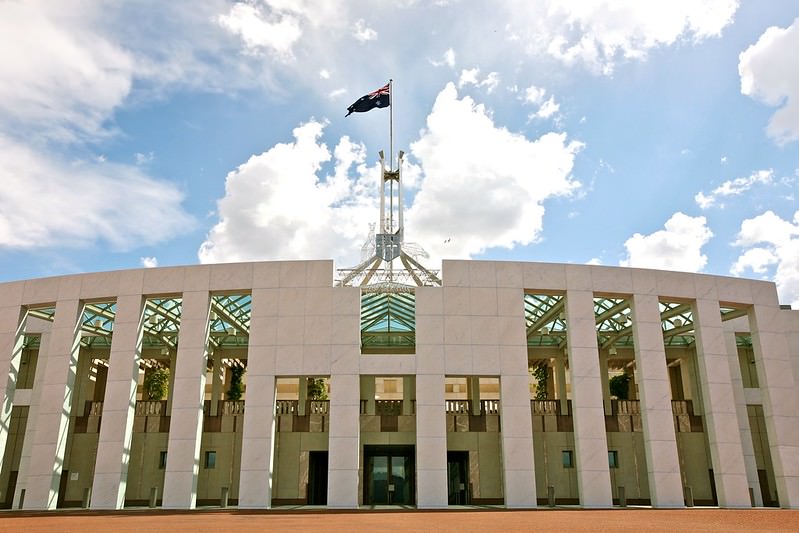Extract from Eureka Street
- Andrew Hamilton
- 20 August 2020
In mid-August in Melbourne the winds get up as spring approaches. This August, too, the winds of public conversation have grown in force. From focusing on the people who suffer from the effects of the coronavirus on personal and public economies, and the need for public solidarity in accepting the hardships of the response to it, they have turned to accusation and blame.

The shift picks up popular frustration with the virus and its strictures, and seeks justification in the name of accountability. In a fine article John Warhurst has examined the complexities of accountability in its different dimensions. I would like here to reflect on the relationship between accountability and other essential aspects of public life: reflection, responsibility, and praise or blame with their attendant punishment and reward. The order and priorities within these need to be respected both in government action and in public comment.
The shift in tone over the last two weeks has been fuelled by enquiries into the failure of quarantine in New South Wales and Victoria, the evident failings of homes for the elderly, and more centrally by the coronavirus outbreak in Victoria and the steps taken to address it. The quarantining of overseas arrivals is a Federal Government responsibility whose administration is delegated to the State Governments. It was demonstrably ineffective in keeping infection out of the community. This failure is potentially embarrassing for all levels of government. It threatens the intergovernmental unity in responding to the virus and so public acceptance of the hardship entailed in this response.
The failure led to the refusal to allow federal officials to appear at a NSW enquiry, and to briefing by Federal Government sources against the Victorian response. This in turn resulted in concerted media attack on the Victorian authorities, in a focus on mistakes made during their response, and in the demand for the resignation of key ministers, all in the name of accountability.
Accountability is a necessary part, but only one part, of responding to a crisis. Any complete response includes four elements: accountability, reflection, responsibility, and praise or blame. Not only the presence but the order between these elements is important. The overarching and most needed aspect of the response is responsibility. Leaders need to take responsibility for responding to the crisis. In this they have a responsibility to their people and to their own conscience for doing so wisely and courageously.
To exercise responsibility, however, requires first that they be reflective. In response to a fast moving and always imperfectly understood crisis, they need to judge the situation calmly, to respond affectively to its human dimension, to seek and accept the advice of people with expertise about the situation, and to act decisively. In doing so they take responsibility for their actions and for their decisions not to act.
'Accountability is a necessary part, but only one part, of responding to a crisis.'
An essential part of their responsibility is to mirror a proper response to the crisis. The focus, calmness, perseverance and patent maturity that they display in placing the needs of the community and particularly its most vulnerable members above their own individual and political interests will model the response required of people more generally. In this respect, to my mind, Premier Daniel Andrews has been exemplary.
Political leaders must also be held accountable for their decisions. Ordinarily this accountability is initially exercised through Parliament as part of the decision making. When they face a national crisis, however, the need to act quickly and restrictions on Parliamentary meetings may mean that accountability comes after the event. Accountability must also be accompanied by reflection, and is best exercised through formal enquiries focused on learning from both the successes and the mistakes of the way governments exercised their responsibility in the crisis. Though focused on the past, its concern is for the future.
Finally, attached to accountability is the allocation of praise and blame. In crises these judgments should reflect the fact that decisions were necessarily taken in haste and often without access to relevant information that only later, if ever, became available.
Recent comments by politicians and media on the coronavirus have moved from focusing on responsibility to accountability, and have identified accountability with blame. They no longer support leaders in their responsibility to act on behalf of the whole society and its most vulnerable members and to encourage generosity of spirit in the community, but set out to blame them for the suffering that has accompanied those decisions.
When accountability is identified with blame, political leaders and their supportive media are tempted to shift blame to their political opponents and to evade their own responsibility. When they do this the focus of their reflection turns from responding to the constantly changing challenges posed by the coronavirus to devising plausible arguments in defence of their past actions. In this process the responsibility required by leaders and people to set aside their individual interests for the good of the whole community is eroded.
The media are right to emphasise the importance of accountability and their own role in ensuring it. That role, however, needs also to be set into a wider responsibility to support leaders and people in their responsibility to address the crisis in a way that places the good of the community above their own interests. In ensuring accountability, their primary role is to report what is being done, including the measures being taken, their impact on people directly affected by the virus and their impact on people affected economically and in other ways by the response. By and large they have done that well.
They should also provide a forum for reflection on issues raised by the virus for Australian society and for dealing with future crises. They will inevitably raise questions of accountability that will need further investigation, ensuring that they do not go unnoticed. But they should not set themselves as a court in which questions of accountability are decided, and blame is assigned. That is where some have been moving, and it is irresponsible.
To understand the importance of insisting on the shared responsibility of political leaders, of citizens and of the media, to set aside their own individual interests for the good of society as a whole, we need only consider Mr Trump’s United States. There irresponsibility has reigned in the response to the coronavirus at a terrible cost. The exercise of responsibility involves a disciplined focus and the stakes are high.
 Andrew Hamilton is consulting editor of Eureka Street.
Andrew Hamilton is consulting editor of Eureka Street.
No comments:
Post a Comment